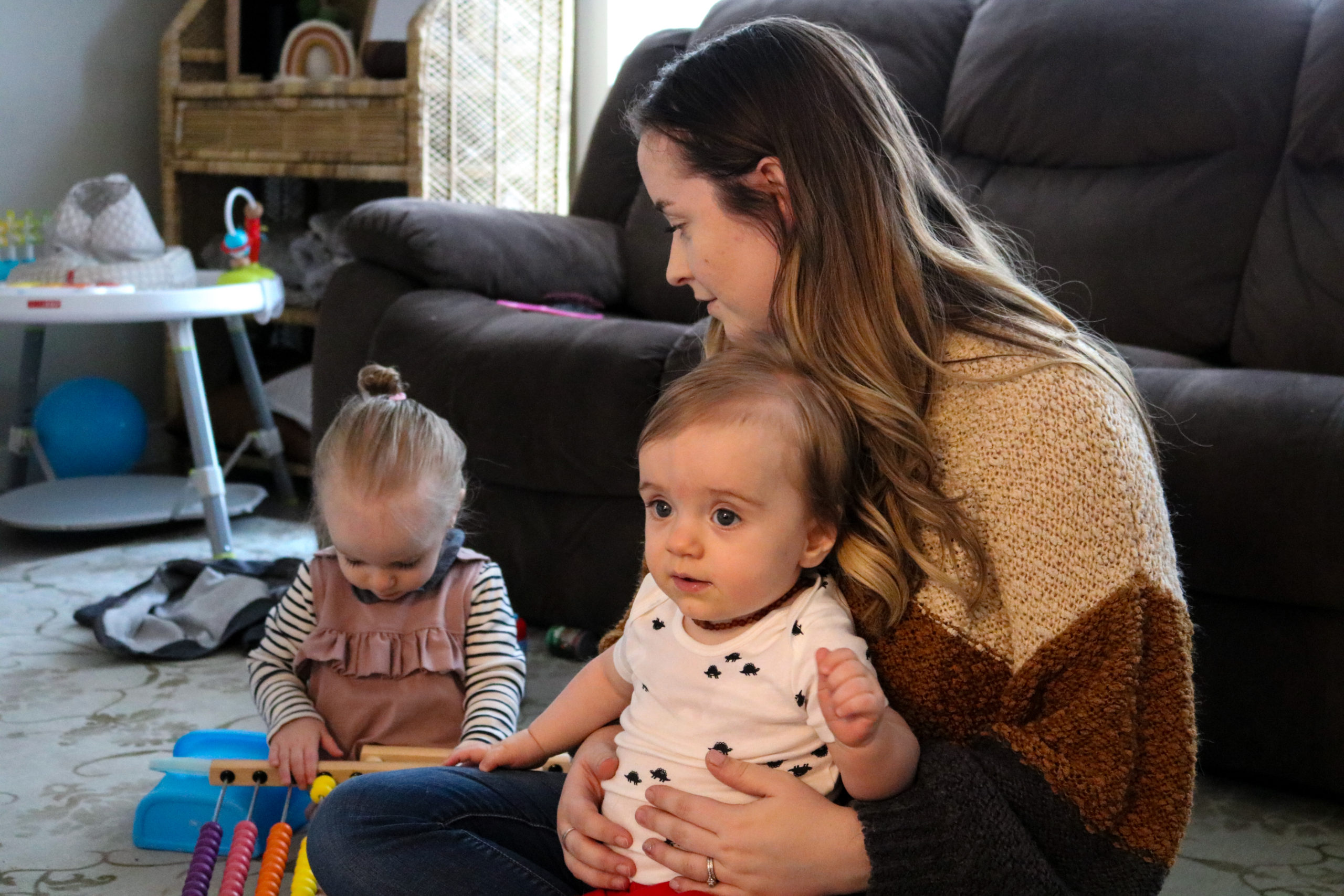The obstetrician walked into her hospital room after taking a closer look at her ultrasound results. The defeat and worry was written across her doctor’s face. The chances of yet another surgery would likely be in her future, making it her third procedure within four weeks after giving birth to her newborn daughter.
She could feel the frustration, anger and exhaustion build as she listened to her doctor explain how remains of her placenta had not been successfully removed.
For 23-year-old Kiera Elton, this was the beginning of a series of surgeries she would have to undergo.
The first-time mother grew up in a large family consisting of three sisters and an older brother. For as long as she could remember, she dreamt of being a mother. Although, she didn’t anticipate the experience to leave her heartbroken, as the ability to birth her own children was stripped from her.
Elton and her husband found out they were pregnant after a year of trying.
However, it didn’t take long for Kiera to find out pregnancy may not be as smooth sailing as she had hoped. She was diagnosed with Hyperemesis Gravidarum which caused vomiting, nauseoua and dizziness to be a part of her daily routine.
Moments after Elton welcomed her newborn daughter Lillian, she could feel someone pushing on her stomach. She learned not only that her placenta had not yet been fully delivered, but it was coming out in pieces.
“I was feeling confused and really didn’t understand what was happening. I was trying to stay calm while they told me they would have to take Lillian away from me and go into surgery right away,” Elton said.
This was the start of a series of surgeries she would have to undergo. Elton went through two more surgeries in the span of a few weeks and still was told the same thing, her placenta was still not fully removed.
After receiving another ultrasound, Elton’s doctor regretted to tell her there were still parts of her placenta stuck. Her doctor decided to allow her to start birth control with hopes to end the bleeding, even though this is not recommended until six weeks postpartum.
The birth control was successful allowing Elton to end the prescription after five months. One month later, the couple announced they were unexpectedly pregnant with their second child.
Due to the severity of her last pregnancy, Elton’s doctor had recommended doing a c-section, but she wanted a natural birth.
Once Elton had gone into labour with her second child, she began to feel incredibly nauseous and dizzy with her blood pressure dropping. Next thing she knew, she woke up with eight doctors surrounding her. The stress continued when her blood pressure dropped drastically three times throughout the course of the next few hours.
Doctors began to question whether she would be strong enough to start pushing since she was already nine centimetres dilated. Elton said she could see the concern on nurses faces, knowing she didn’t have much fight left in her. Elton fought with everything she had left and welcomed her son, Lochlann to the family.
“I was so happy, and it felt like such an accomplishment to deliver my full placenta,” Elton said.
Unfortunately, this sigh of relief didn’t last long. Two weeks after delivering her son, she experienced the same symptoms from her first pregnancy. Elton was told Uterine Artery Embolization surgery was the only option. This surgery would allow a radiologist to use a catheter to deliver small particles that block the blood supply to the uterine body. The surgery did not go as well as she planned.
“I was told I basically almost bled out on the table and there was a high chance they thought I could have died,” said Elton. “They had to give me a blood transfusion because of how much blood I lost.”
The family returned home for one night, before the excessive bleeding returned. This time Elton knew the solution was going to be different. After trying multiple medications to attempt to stop the bleeding and injections, she knew her worst nightmare was about to come true.
Her doctor explained her placenta and uterus had grown into each other, eventually causing her uterus to turn septic. The result would be fatal.
Elton was 22-years-old when she was told she would need to get a hysterectomy.
As Kiera went on to heal from her traumatizing battle with postpartum complications, she dealt with increasing postpartum depression and anxiety. She found postpartum isn’t talked about enough, whether that be the physical or mental side.
Statistics Canada analyzed over 7,000 new mothers in 2018 and found 23 per cent reported consistent feelings with either postpartum depression or an anxiety disorder.
“Encourage new moms who are struggling to seek help. There is no “wrong” way to feel,” said Monica Loewen, executive director of Lethbridge Pregnancy Care Centre.
Elton said she tries to focus on the positives by not living in regret. She said she is grateful to have the two children she does have and to be alive despite the challenges she had to face.



